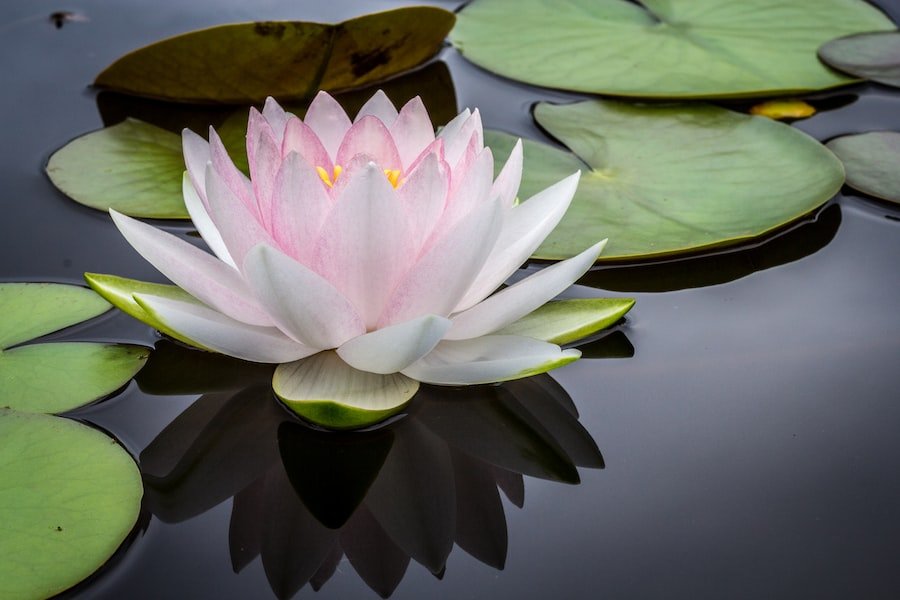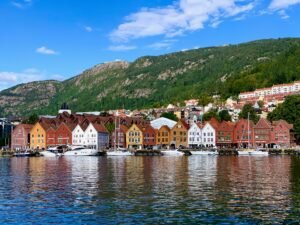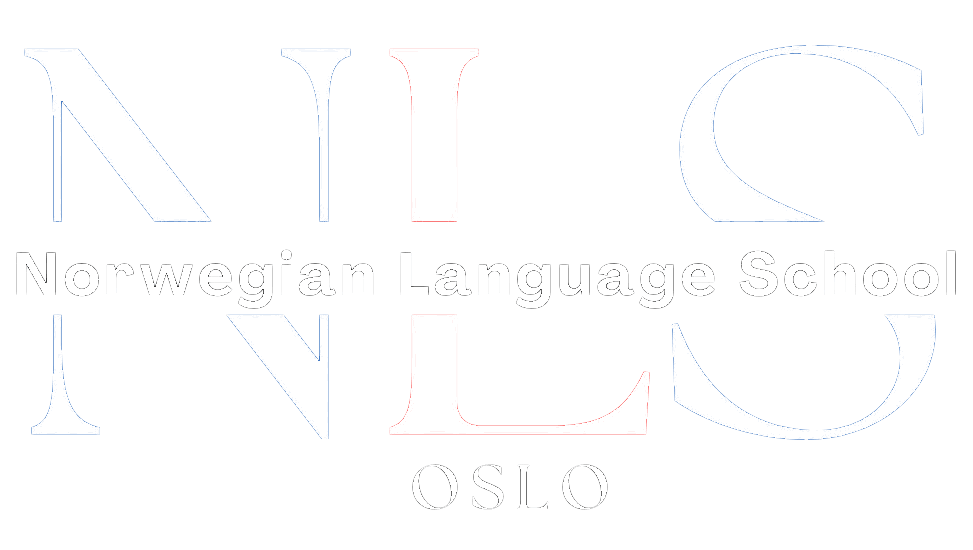Self-care and wellness have become buzzwords in recent years, but in Norwegian culture, they are deeply ingrained values that have been practiced for centuries. Norway is known for its stunning natural landscapes, and the Norwegian people have a strong connection to nature. This connection is reflected in their self-care practices, which often involve spending time outdoors and engaging in physical activity. Additionally, Norwegian culture places a strong emphasis on social connection and community, which is another important aspect of self-care and wellness. In this article, we will explore the importance of self-care and wellness in Norwegian culture, the origins of Norwegian words for self-care and wellness, the role of nature in Norwegian self-care practices, common Norwegian words for mindfulness and meditation, physical self-care and exercise, social connection, healthy eating and nutrition, traditional remedies, incorporating Norwegian self-care practices into your daily routine, and embracing the concept of “hygge” for overall well-being.
Table of Contents
ToggleKey Takeaways
- Self-care and wellness are highly valued in Norwegian culture.
- Norwegian words for self-care and wellness have roots in nature and the outdoors.
- Mindfulness and meditation are common practices in Norway, with specific words to describe them.
- Physical self-care and exercise are also important, with unique Norwegian words to describe them.
- Social connection and healthy eating are key components of Norwegian wellness practices.
Understanding the Importance of Self-Care and Wellness in Norwegian Culture
Self-care and wellness are deeply ingrained in Norwegian culture. The Norwegian people prioritize their well-being and understand that taking care of themselves is essential for leading a happy and fulfilling life. This emphasis on self-care is not seen as selfish or indulgent but rather as a necessary part of maintaining overall health and happiness.
One of the reasons why self-care is so important in Norwegian culture is because of the harsh climate and long winters that the country experiences. Norwegians have learned to take care of themselves physically, mentally, and emotionally to combat the challenges that come with living in such conditions. They understand that taking time for themselves and engaging in activities that bring them joy is crucial for their well-being.
Prioritizing self-care and wellness has numerous benefits. It can help reduce stress levels, improve mental health, increase productivity, boost creativity, enhance relationships, and promote overall happiness. By taking care of themselves, Norwegians are able to show up as their best selves in all areas of their lives.
Exploring the Origins of Norwegian Words for Self-Care and Wellness
The Norwegian language has a rich history that reflects the values and beliefs of the culture. The words used to describe self-care and wellness in Norwegian often have deep meanings that go beyond their literal translations. For example, the word “selvpleie” translates to “self-care” in English, but it also carries the connotation of taking responsibility for one’s own well-being and actively engaging in practices that promote health and happiness.
Similarly, the word “velvære” translates to “wellness” in English, but it encompasses more than just physical health. It includes mental, emotional, and spiritual well-being as well. The Norwegian language recognizes that true wellness is a holistic concept that encompasses all aspects of a person’s life.
The origins of these words can be traced back to the cultural values and beliefs of the Norwegian people. They have a deep respect for nature and understand the importance of living in harmony with the natural world. This is reflected in their language, which often includes words that describe self-care practices that involve spending time outdoors and connecting with nature.
The Role of Nature in Norwegian Self-Care Practices
Norway’s natural landscape plays a significant role in the self-care practices of its people. The country is known for its breathtaking fjords, mountains, forests, and lakes, which provide endless opportunities for outdoor activities. Norwegians have a deep appreciation for nature and understand that spending time outdoors is essential for their well-being.
Engaging in outdoor activities such as hiking, skiing, fishing, and camping is not only a way to stay physically active but also a way to connect with nature and find peace and tranquility. Being surrounded by Norway’s natural beauty can have a calming effect on the mind and help reduce stress levels. It also provides an opportunity to disconnect from the demands of everyday life and focus on the present moment.
In addition to outdoor activities, Norwegians also practice “friluftsliv,” which translates to “open-air living” in English. This concept involves spending time in nature and embracing the outdoors as a way of life. It is about immersing oneself in the natural world and finding joy and fulfillment in simple pleasures such as breathing in fresh air, feeling the sun on your skin, and listening to the sounds of nature.
Common Norwegian Words for Mindfulness and Meditation
Mindfulness and meditation are practices that are deeply rooted in Norwegian culture. The Norwegian people understand the importance of being present in the moment and cultivating a sense of inner peace and calm. They have developed their own words to describe these practices, which reflect their values and beliefs.
One common Norwegian word for mindfulness is “oppmerksomhet,” which translates to “attention” or “awareness” in English. This word emphasizes the importance of being fully present and paying attention to one’s thoughts, feelings, and surroundings. It is about being aware of what is happening in the present moment without judgment or attachment.
Another common Norwegian word for mindfulness is “tilstedeværelse,” which translates to “presence” or “being present” in English. This word emphasizes the importance of being fully engaged in the present moment and not getting caught up in thoughts about the past or worries about the future. It is about embracing the here and now and finding joy and contentment in each moment.
Norwegians also have their own words for meditation, such as “meditasjon” and “stillebønn.” These words reflect the practice of quieting the mind, finding stillness within, and connecting with a higher power or inner wisdom. Meditation is seen as a way to cultivate inner peace, clarity, and spiritual connection.
Norwegian Words for Physical Self-Care and Exercise

Physical activity is an important aspect of self-care and wellness in Norwegian culture. Norwegians understand the importance of taking care of their bodies and staying physically active. They have developed their own words to describe different types of exercise and physical self-care practices.
One common Norwegian word for exercise is “trening,” which translates to “training” or “workout” in English. This word encompasses a wide range of physical activities, from going to the gym to participating in sports or engaging in outdoor activities. Norwegians understand that regular exercise is essential for maintaining physical health and well-being.
Another common Norwegian word for physical self-care is “bevegelse,” which translates to “movement” in English. This word emphasizes the importance of staying active and incorporating movement into daily life. It is about finding joy in movement and embracing a lifestyle that prioritizes physical activity.
Norwegians also have their own words for specific types of exercise, such as “løping” for running, “sykling” for cycling, and “svømming” for swimming. These words reflect the diverse range of physical activities that Norwegians engage in to stay fit and healthy.
The Importance of Social Connection in Norwegian Wellness Practices
Social connection is a key aspect of self-care and wellness in Norwegian culture. Norwegians understand the importance of building strong relationships and fostering a sense of community. They have developed their own words to describe social connection and community, which reflect their values and beliefs.
One common Norwegian word for social connection is “fellesskap,” which translates to “community” or “fellowship” in English. This word emphasizes the importance of coming together as a group and supporting one another. It is about creating a sense of belonging and finding strength in unity.
Another common Norwegian word for social connection is “samhold,” which translates to “togetherness” or “solidarity” in English. This word emphasizes the importance of standing together and supporting one another through both good times and bad. It is about building strong relationships and creating a sense of shared purpose and identity.
Norwegians also have their own words for specific types of social connection, such as “vennskap” for friendship, “familie” for family, and “nabo” for neighbor. These words reflect the different types of relationships that Norwegians value and prioritize in their lives.
Norwegian Words for Healthy Eating and Nutrition
Healthy eating and nutrition are important aspects of self-care and wellness in Norwegian culture. The Norwegian people understand the importance of nourishing their bodies with wholesome, nutritious foods. They have developed their own words to describe healthy eating and nutrition, which reflect their values and beliefs.
One common Norwegian word for healthy eating is “sunn mat,” which translates to “healthy food” in English. This word emphasizes the importance of choosing foods that are good for the body and provide the necessary nutrients for optimal health. Norwegians understand that what they put into their bodies has a direct impact on their overall well-being.
Another common Norwegian word for nutrition is “ernæring,” which translates to “nutrition” in English. This word encompasses the science of how food affects the body and the process of providing the body with the necessary nutrients for growth, development, and maintenance. Norwegians understand that proper nutrition is essential for maintaining good health.
Norwegians also have their own words for specific types of healthy foods, such as “frukt” for fruit, “grønnsaker” for vegetables, and “fisk” for fish. These words reflect the emphasis that Norwegians place on incorporating whole, unprocessed foods into their diets.
Traditional Norwegian Remedies for Self-Care and Wellness
In addition to modern self-care practices, the Norwegian people also have a rich tradition of using natural remedies to promote self-care and wellness. These remedies have been passed down through generations and are still used today. Norwegians have developed their own words to describe these remedies, which reflect their cultural heritage.
One traditional Norwegian remedy is the use of herbs and plants for medicinal purposes. Norwegians have a deep knowledge of the healing properties of different plants and have developed their own words to describe these remedies. For example, “urtemedisin” translates to “herbal medicine” in English, and “urteblanding” translates to “herbal blend” or “herbal mixture.”
Another traditional Norwegian remedy is the use of saunas for relaxation and detoxification. Saunas have been used in Norway for centuries as a way to cleanse the body and promote overall well-being. The Norwegian word for sauna is “badstue,” which translates to “bathhouse” in English.
Norwegians also have their own words for specific types of traditional remedies, such as “trollolje” for a healing oil made from herbs and “bjørkesaft” for birch sap, which is believed to have detoxifying properties. These words reflect the unique remedies that Norwegians use to take care of themselves and promote wellness.
Incorporating Norwegian Self-Care Practices into Your Daily Routine
You don’t have to be Norwegian to benefit from their self-care practices. There are many ways you can incorporate Norwegian self-care practices into your daily routine to improve your well-being.
One way to do this is by spending more time in nature. Take a walk in the park, go for a hike, or simply sit outside and enjoy the fresh air. Connecting with nature can help reduce stress levels, improve mood, and promote overall well-being.
Another way to incorporate Norwegian self-care practices into your daily routine is by practicing mindfulness and meditation. Set aside a few minutes each day to sit in silence, focus on your breath, and be fully present in the moment. This can help calm the mind, reduce anxiety, and increase feelings of peace and contentment.
Physical activity is another important aspect of Norwegian self-care practices. Find an activity that you enjoy, whether it’s going for a run, taking a yoga class, or dancing around your living room. Engaging in regular physical activity can help boost energy levels, improve mood, and enhance overall well-being.
Social connection is also crucial for self-care and wellness. Make an effort to spend time with loved ones, whether it’s having a meal together, going for a walk, or simply talking on the phone. Building strong relationships and fostering a sense of community can have a positive impact on your mental and emotional well-being.
Embracing the Norwegian Concept of “Hygge” for Overall Well-Being
One concept that is closely associated with self-care and wellness in Norwegian culture is “hygge.” Hygge is a Danish word that has been adopted by the Norwegian people to describe a feeling of coziness, comfort, and contentment. It is about creating a warm and inviting atmosphere and finding joy in simple pleasures.
Embracing hygge can promote overall well-being by helping you slow down, relax, and enjoy the present moment. It is about creating a sense of sanctuary in your home and surrounding yourself with things that bring you joy. This could be lighting candles, snuggling up with a good book, or enjoying a cup of tea.
Hygge is also about connecting with loved ones and creating meaningful experiences together. It is about sharing meals, playing games, and engaging in activities that bring you closer together. By embracing hygge, you can cultivate a sense of belonging and foster strong relationships, which are essential for overall well-being.
Self-care and wellness are deeply ingrained in Norwegian culture. The Norwegian people understand the importance of taking care of themselves physically, mentally, and emotionally. They prioritize their well-being and understand that self-care is not selfish but rather a necessary part of leading a happy and fulfilling life.
Norwegians have developed their own words to describe self-care and wellness practices, which reflect their values and beliefs. These words encompass a wide range of practices, from spending time in nature to practicing mindfulness and meditation, engaging in physical activity, fostering social connection, eating healthy foods, and using traditional remedies.
By incorporating Norwegian self-care practices into your daily routine, you can improve your well-being and lead a happier, healthier life. Whether it’s spending more time in nature, practicing mindfulness and meditation, engaging in physical activity, fostering social connection, eating healthy foods, or embracing the concept of hygge, there are many ways you can prioritize self-care and wellness in your own life. So why not take a page from the Norwegian playbook and start prioritizing your well-being today?








